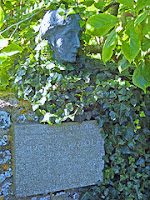Regarding the Pain of Others

(excerpts from the above titled book)
by Susan Sontag
In June 1938 Virginia Woolf published Three Guineas, her brave, unwelcomed reflections on the roots of war. Written during the preceding two years, while she and most of her intimates and fellow writers were rapt by the advancing fascist insurrection in Spain, the book was couched as the very tardy reply to a letter from an eminent lawyer in London who had asked, "How in your opinion are we to prevent war?"
Woolf begins by observing tartly that a truthful dialogue between them may not be possible. For though they belong to the same class, "the educated class," a vast gulf separates them: the lawyer is a man and she is a woman. Men make war. Men (most men) like war, since for men there is "some glory, some necessity, some satisfaction in fighting" that women (most women) do not feel or enjoy. What does an educated read: privileged, well-off-woman like her know of war? Can her recoil from its allure be like his?
Let us test this "difficulty of communication" Woolf proposes, by looking together at images of war. The images are some of the photographs the beleaguered Spanish government has been sending out twice a week; she footnotes: "Written in the winter of 1936--37." Let's see.
Woolf writes, "whether when we look at the same photographs we feel the same things." She continues: This morning's collection contains the photograph of what might be a man's body, or a woman's; it is so mutilated that it might, on the other hand, be the body of a pig. But those certainly are dead children, and that undoubtedly is the section of a house. A bomb has torn open the side; there is still a bird-cage hanging in what was presumably the sitting room.
The quickest, driest way to convey the inner commotion caused by these photographs is by noting that one can't always make out the subject, so thorough is the ruin of flesh and stone they depict. And from there Woolf speeds to her conclusion. We do have the same responses, "however different the education, the traditions behind us," she says to the lawyer. Her evidence: both "we" -- here women are the "we" -- and you might well respond in the same words.
You, Sir, call them "horror and disgust." We also call them horror and disgust. War, you say, is an abomination; a barbarity; war must be stopped at whatever cost. And we echo your words. War is an abomination; a barbarity; war must be stopped.
WHO ARE THE "WE" at whom such shock-pictures are aimed? That "we" would include not just the sympathizers of a smallish nation or a stateless people fighting for its life, but a far larger constituency those only nominally concerned about some nasty war taking place in another country. The photographs are a means of making "real" (or "more real") matters that the privileged and the merely safe might prefer to ignore.
"Here then on the table before us are photographs," Woolf writes of the thought experiment she is proposing to the reader as well as to the spectral lawyer, who is eminent enough, as she mentions, to have K.C., King's Counsel, after his name-and may or may not be a real person. Imagine then a spread of loose photographs extracted from an envelope that arrived in the morning post. They show the mangled bodies of adults and children. They show how war evacuates, shatters, breaks apart, levels the built world.

"A bomb has torn open the side," Woolf writes of the house in one of the pictures. To be sure, a cityscape is not made of flesh. Still, sheared off buildings are almost as eloquent as bodies in the street. (Kabul, Sarajevo, East Mostar, Grozny, sixteen acres of lower Manhattan after September ii, 2001, the refugee camp in Jenin. . .) Look, the photographs say, this is what it's like. This is what war does. And that, that is what it does, too. War tears, rends. War rips open, eviscerates. War scorches. War dismembers. War ruins.
Not to be pained by these pictures, not to recoil from them, not to strive to abolish what causes this havoc, this carnage these, for Woolf, would be. the reactions of a moral monster. And, she is saying, we are not monsters, we members of the educated class.
Our failure is one of imagination, of empathy: we have failed to hold this reality in mind.
SOURCE
Let me just say that I believe that War is PROFANE, but DEFENSE is Compulsory. And in defense, sometimes blood is shed. However, I don't believe actions regarding war should be made by politicians who have never served in one.
~~~~~~~~~~
Virginia Woolf is among my all-time, personal, favorite writers. To anyone who hasn't read her works (particularly women) please get a copy of A ROOM OF ONE'S OWN and settle in for a soulful and insightful read. - Barbara

Comments